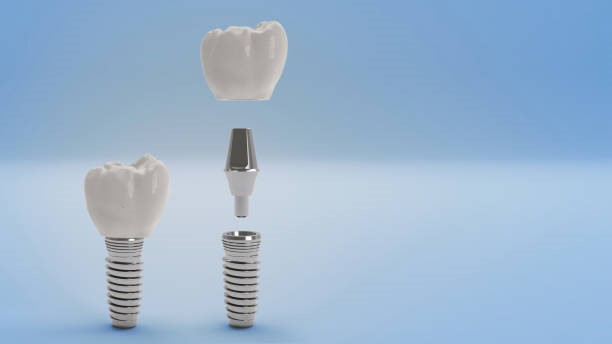
Signs There May Be an Issue with Your Dental Implant and How to Look After Them Best
August 31, 2024
Dental implants are a popular solution for replacing missing teeth, offering a durable and natural-looking alternative to dentures. Whether you’ve recently had dental implants in Hampshire, dental implants in Dorset, or you’re considering looking for “dental implants near me”, it’s essential to recognise the signs that there may be an issue with your implant and understand how to maintain them properly.
At Smile Circle, we connect patients with the best dentist and dental practices to ensure they receive the highest quality dental care.
Signs of Issues with Your Dental Implants
1. Persistent Toothache or Discomfort
It’s normal to experience some discomfort immediately after getting dental implants, but persistent toothache or pain that lasts beyond the initial healing period may indicate a problem. If you’re experiencing ongoing pain, it’s crucial to consult an implant specialist.
2. Inflammation and Swelling
While some swelling is expected post-surgery, prolonged or excessive inflammation can be a sign of infection or other complications. Swelling that doesn’t subside within a few days should be examined by a dental implant specialist.
3. Gum Recession Around the Implant
Gum recession can expose the implant and make it more susceptible to bacteria, potentially leading to infection. If you notice your gums pulling back from the implant site, seek advice from the best dentist in your area.
4. Difficulty Chewing or Biting
Dental implants are designed to function like natural teeth. If you experience difficulty chewing or biting, this could signal that the implant is not properly integrated or there is an issue with the placement.
5. Loose Implant
A dental implant should feel secure. If your implant feels loose or wobbly, it could be a sign of bone loss or improper healing. Immediate consultation with an implant specialist is necessary.
Best Practices for Looking After Your Dental Implants
1. Maintain Excellent Oral Hygiene
Keeping your implants clean is crucial for preventing infection and ensuring long-term success. Brush twice daily and floss regularly, paying special attention to the areas around the implant.
2. Regular Dental Check-Ups
Schedule routine visits with your dentist to monitor the health of your implants. Regular check-ups allow for early detection of any potential issues, ensuring prompt treatment.
3. Avoid Hard Foods
While dental implants are robust, avoiding excessively hard foods can prevent unnecessary stress on the implant. This helps in maintaining the integrity of the implant and surrounding tissues.
4. Quit Smoking
Smoking can impede the healing process and increase the risk of implant failure. For optimal oral health and implant longevity, consider quitting smoking.
5. Use a Soft-Bristled Toothbrush
A soft-bristled toothbrush is gentler on your gums and the implant site. This can help in preventing gum irritation and maintaining good dental care habits.
Finding the Best Dental Implants and Specialists
If you’re experiencing issues with your dental implants or need guidance on replacing missing teeth, finding a trusted professional is essential.
Smile Circle can help you locate the best dental implants in Hampshire or dental implants in Dorset, or by simply searching for “dental implants near me”.
We work with a network of private and NHS dentists who specialise in both cosmetic and general dentistry.

For more information on finding a dentist near you, visit smilecircle.com. Our platform connects you with dental professionals who can cater to all your dental needs, ensuring you receive the best dental implants and comprehensive care for optimal oral health.

 Head Office - UK - Unit 1 B 132 Weyhill Road, Andover, Hampshire England, SP10 2PR.
Head Office - UK - Unit 1 B 132 Weyhill Road, Andover, Hampshire England, SP10 2PR. 








